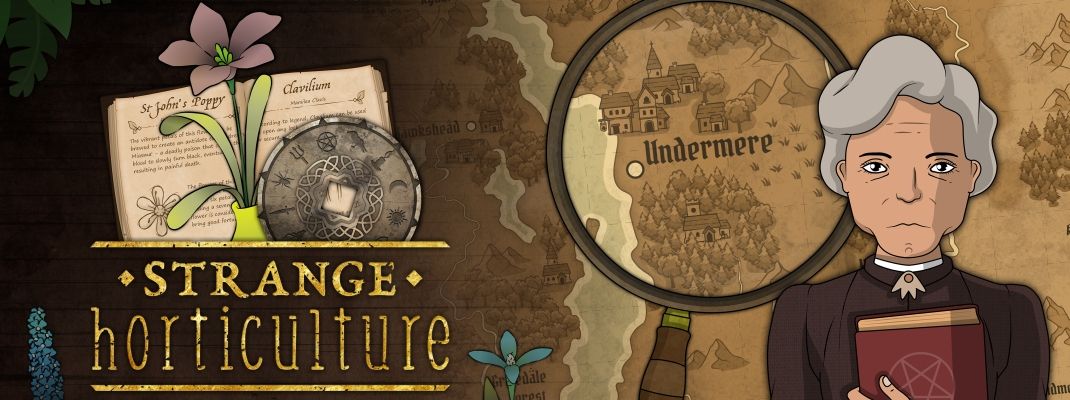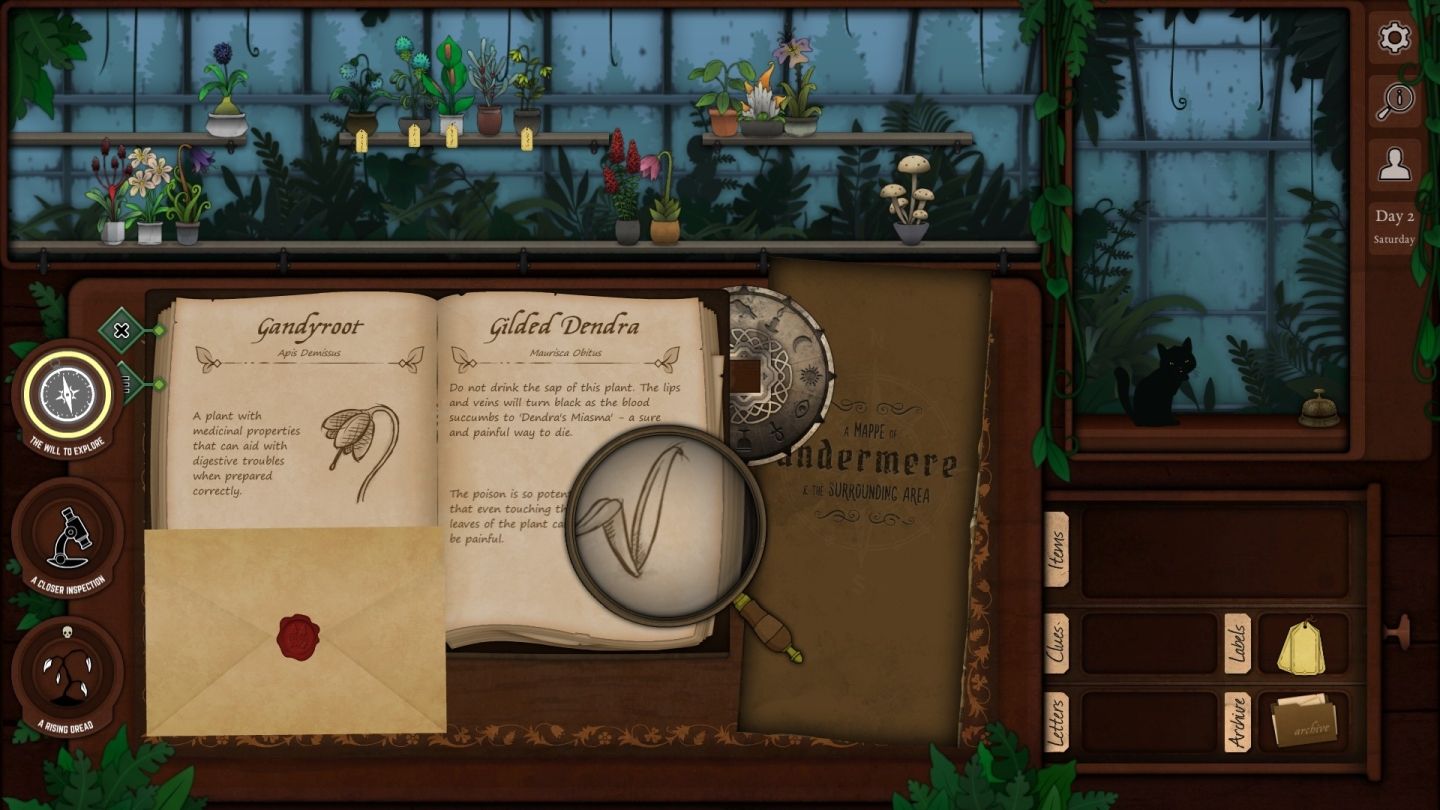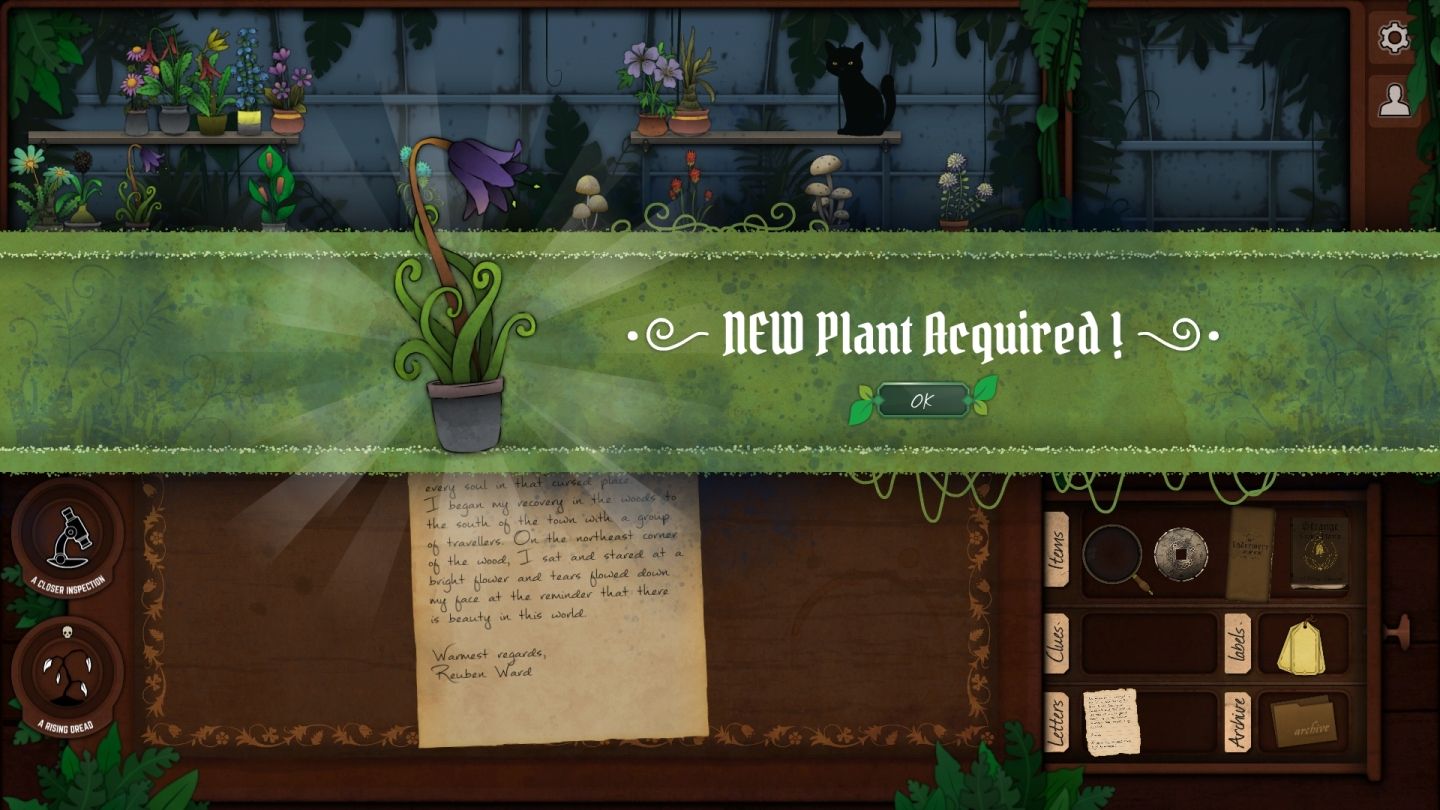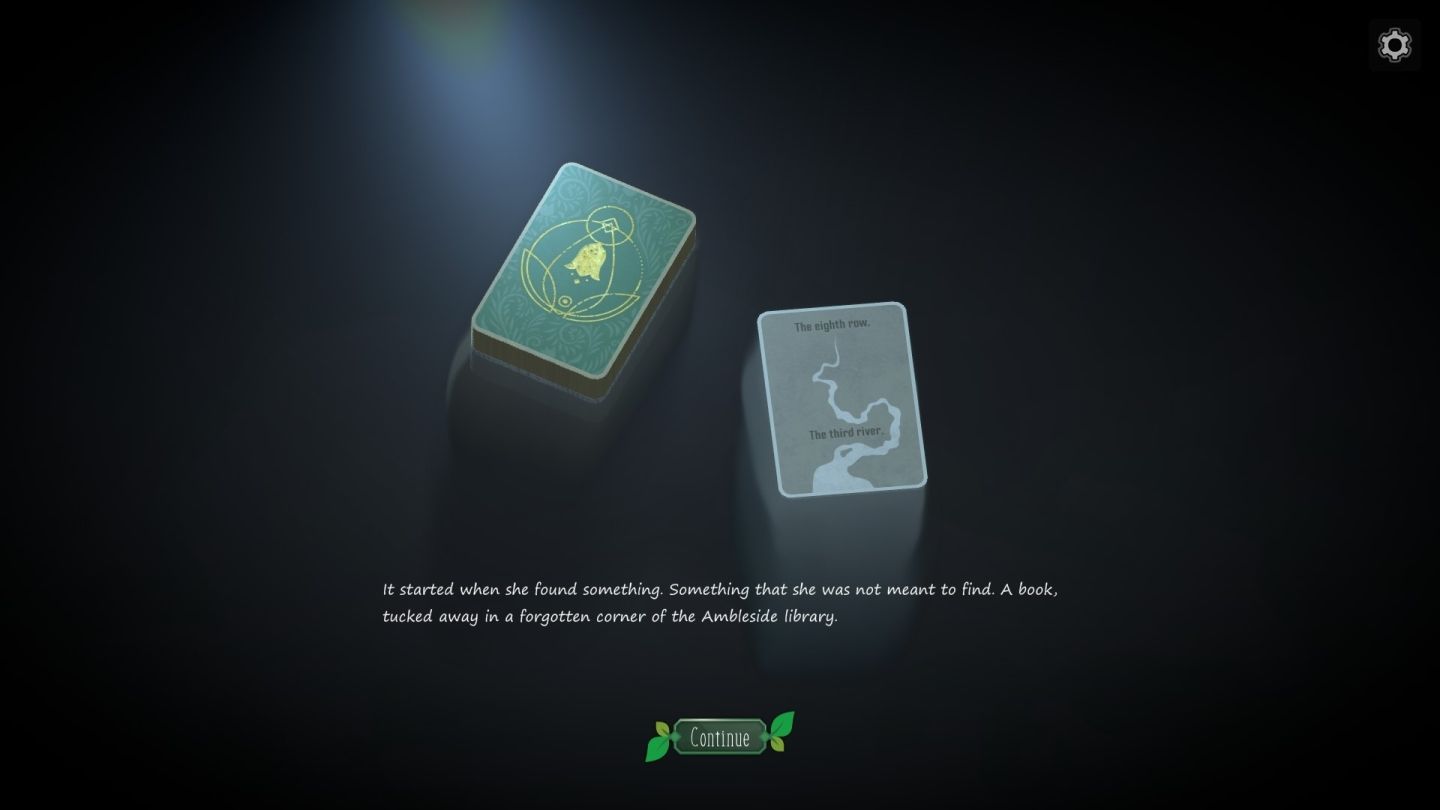A while back during a virtual event with a lot of games to try out, I heard some of my peers buzzing about Strange Horticulture, a new game from developers Bad Viking and Iceberg Interactive. It didn't particularly strike as that intriguing at first. A game where you manage a plant store, with some fantasy elements? It didn't sound bad, but it didn't sound like anything notable, for good or bad. But I decided to give it a shot and the next I knew, more than hour had passed, and I was pouring over the encyclopedia I had amongst the various letters gathered, trying to deduce what plant is best for providing courage, because I wanted to help this customer and show off my newfound plant knowledge. So it goes without saying that there's a reason why there was buzz and why this game is something you shouldn't skip.
Strange Horticulture sees you operating the titular plant store in the town of Undermere, helping out each person that walks in by properly identifying the plant that they ask for, be it flower, fruit or fungi. It just all happens to also be in a world filled with covens, cults, sorcery and occult elements in general, so the plants you provide are given to more unique individuals for equally unique purposes. And over the course of a few weeks, your help is requested in order to locate a combination of rare planets needed to ward off a particular form of evil that's seemingly been released, one causing nightmares, or even worse, death...
Let's get straight to what's likely the biggest reason why Strange Horticulture can easily see you sucked in for hours; Namely, that the gameplay is just so perfectly zen. In the same vein as a game like Unpacking, one may say, in that the joy oddly comes from what could arguably described as just doing chores (or little bits like tidying your desk, organizing shelves or petting your cat). But there's just something in the way that the game handles the process in which you analyze a plant and the puzzles contained within doing so. There's this perfect mixture of nicely-challenging problem solving and a more laid-back feeling around it all that, when experienced, expertly nails this feeling of running a quaint little business and actually simulating horticulture. All in world being threatened by supernatural forces, but still.
Again, though, what makes the core gameplay truly sing is its puzzle design. Taken at its basics, it simply involves referencing the encyclopedia given to you to try and find the proper plant you need, going off of various clues. But it gets tricky in subtle ways as more entries appear. Sometimes it can seem as simple as matching the flower drawn in the book to a flower on your shelf. But then at other times, entries will only have drawings of the plant's leaves, buds, seeds, maybe it has cross-sections of things, etc. Or maybe the necessary clues in the encyclopedia refer more to different properties of each plant such as smelling like pine, having still leaves, spongy textures on mushrooms, or maybe there's a mention of what the customer wants it for, like the potential to bring luck, cure illnesses or protect one's memory.
The puzzles basically not only require you to pay notice to the visual design of each plant, but also make sure to put it under the microscope to get the additional facts required, brilliantly making sure that you have an eye for all of the little details. And there's just this superb hit of joy delivered when you properly figure out the correct plant, hand it to a customer, and the game lets you know it succeeded, unlocking a new encyclopedia entry in the process while you proudly slap a tag on the plant with its correct name. For the record, failure means possibly filling up the "A Rising Dead" meter that can affect your sanity, but without trying to brag, that never happened to this reviewer once, so I can't say if it affects you in any deeper way beyond having to solve a unique puzzle. But while that covers the main horticulture parts, getting new plants requires an entirely different set of puzzles.
Strange Horticulture requires having to venture outside the shop at times, and in these cases, you have to navigate a grid-based map showing the land as a whole. Here you have to deduce various instructions and riddles you received via letters and cards, and this is where the game switches from horticulture to navigation in a nice twist. Some clues require you to notice certain rivers and where they begin or end, or where the highest mountains are, or even require tools to decode hidden messages. These parts brought to mind classic graphic adventure games in the best ways possible, requiring you put your deductive skills to the test even further.
Of course, you can also travel anywhere you want on the map, with some areas delivering a little bit of lore, some a secret or two, and some even more dread if you travel to the wrong areas. The story in Strange Horticulture is a simple but effective one that delivers a nice bit of mystery with a bigger focus on your various customers and their own stories and roles to play. Notably, while the game only lasted about five hours for this reviewer's playthrough, there are multiple choices to make along the way through the plants you give and multiple outcomes, encouraging additional playthroughs. Plus, having only identified just over two-thirds of the seventy-some plants, it's nice to discover a post-game that features more exploration as well, a little extra bang for the buck being nice.
Since you spend your time either in the store or traveling across a map, Strange Horticulture isn't exactly a game that's heavy on visuals, relying more on text and the occasional sketch. What it excels at instead is being able to set a proper mood, with the various odd greenery adorning your shelves and the lovely soundtrack creating a somewhat eerie yet tranquil mood, with a ton of work clearly put into the look and history of each plant. This is described as "an occult puzzle game," but the "occult" part isn't Lovecraftian, but more like...well, at least one other person has compared it to The Witcher and that seems accurate. The focus is more on witchcraft, rituals, more Celtic-ish folklore and such, and it creates a more subtle yet effective fantasy atmosphere.
About the only real complaint to be had with Strange Horticulture is that it has a few elements that aren't used as effectively as they should. For example, you get the ability to create elixirs from plant combinations later on, but the story only requires it about three times or so. Then there's "The Will to Explore" meter, where you can only travel when it fills up, typically boosted by a new letter. After traveling, it gets put on a cooldown meter, which you can refill by watering plants. But there doesn't seem to be a time limit either (or at least not one in real-time that could be seen, as some areas only have events before or after certain visitors and days), so a cooldown seems pointless, the only penalty for going to wrong area basically waiting a couple of minutes. But that's just a minor inconvenience and at least you get the unintentional hilarity of leaving a customer in your shop as you head out to trek several miles for the plant they need.
Closing Comments:
Strange Horticulture is a true hidden gem and a pleasant surprise to start the year on, a delightfully quirky and charming puzzle game that puts a unique spin on botany and requires you to develop a green thumb in order to succeed, largely thanks to puzzle design that truly excels in creating simple yet challenging orders. Backed up by an intriguing world that allows for a lot of interesting lore behind each plant and a relaxing atmosphere, this is something fans of puzzlers should check out. Pardon the awful pun, but it'll grow on you.




